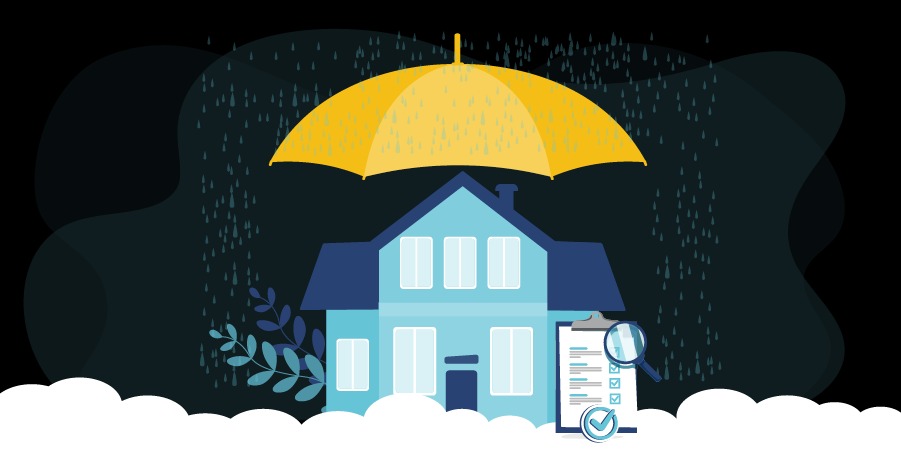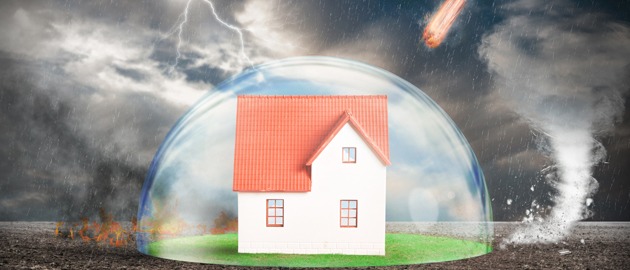Owning a home is a big deal, and keeping it safe is key. Homeowners insurance is essential for protecting your home, stuff, and money. This article covers the basics of homeowners insurance, including types of coverage, liability protection, and what to look for in a policy.
Homeowners insurance acts as a safety net, covering many risks and unexpected events. It helps with repairs to your home, protects your belongings, and offers liability coverage for accidents or injuries. A good policy lets you enjoy your home without worry.

Key Takeaways
- Homeowners insurance provides essential protection for your property and belongings.
- Coverage includes dwelling, personal property, liability, and additional living expenses.
- Understanding the different types of coverage and their importance is crucial.
- Liability protection safeguards you from legal and financial risks in the event of accidents or injuries on your property.
- Deductibles, premiums, discounts, and the claims process are important factors to consider when selecting a homeowners insurance policy.
Also Raed: Navigating Auto Insurance: Debunking Myths About Rates, Discounts, and Coverage
Introduction to Homeowners Insurance
Owning a home is a big deal, and keeping it safe is key. That’s where homeowners insurance comes in. It’s a full-coverage plan that protects your home and gives you financial peace of mind when bad things happen.
Why Homeowners Insurance Matters
Homeowners insurance is more than a nice-to-have; it’s a must-have. It helps you avoid big costs for repairs or replacements after disasters like fires, storms, or theft. Without it, you could face huge expenses that could hurt your finances.
Understanding the Basics
At its heart, homeowners insurance is a deal between you and your insurance company. It tells you what’s covered, what you’ll pay upfront, and how much you’ll pay each month. Knowing these basics is important to make sure you have the right protection for your home.

Homeowners Insurance Essentials
Homeowners insurance is key to protecting your home. It covers your most valuable asset – your dwelling. A good policy includes coverages that keep your home and belongings safe.
Dwelling coverage protects your home from damage like fire, wind, or theft. It helps fix or rebuild your home if disaster hits. Personal property coverage also matters, as it guards your home’s contents, like furniture and electronics, in case of loss.

Liability protection is another vital part. It covers you if someone gets hurt on your property or if you damage theirs. This helps with legal costs and settlements.
Additional living expenses coverage is for when your home is too damaged to live in. It pays for temporary housing, meals, and other needs while your home is fixed.
Knowing about these insurance basics is key to protecting your home and family. A solid policy gives you peace of mind and financial security.
Also Read: Navigating Health Insurance: Key Insights on Deductibles, Quotes, and Family Coverage
Types of Homeowners Insurance Coverage
Homeowners insurance policies usually have dwelling coverage and personal property coverage. These are key to protecting your home and what’s inside. Knowing about deductibles and premiums helps you choose the right policy.
Dwelling Coverage
Dwelling coverage protects your home’s structure, like walls and roof. It helps pay for repairs or rebuilding if your home is damaged by a covered event. The coverage amount depends on your home’s size, age, and local construction costs.
Personal Property Coverage
Personal property coverage guards your home’s contents, like furniture and jewelry. It helps replace or fix items if they’re damaged by a covered loss. The coverage amount varies based on your possessions’ value and any discounts or riders you add.
Understanding dwelling coverage and personal property coverage helps you customize your policy. Knowing about deductibles and premiums is also important. Looking into discounts and riders can save you money on your insurance.
Liability Protection and Additional Living Expenses
Homeowners insurance does more than protect your home. It also gives you vital liability protection. This helps if someone gets hurt on your property. It covers medical bills, legal costs, and settlements, keeping you safe from big financial losses.
Another key part is additional living expenses (ALE) coverage. It helps if your home is too damaged to live in, like after a fire. ALE pays for temporary housing, food, and other costs while your home is fixed or rebuilt. This can be a big help for homeowners who need a place to stay while their home is being repaired.
When picking a homeowners insurance policy, look closely at the liability and ALE coverage. Knowing these parts helps you choose the right policy. This way, you can protect your assets and stay financially safe if something bad happens.
Conclusion
Homeowners insurance is key to protecting your biggest asset – your home. It covers various aspects, including damage, liability, and the claims process. This ensures your home and belongings are safe.
It’s important to review your current insurance plan. Working with trusted insurance providers helps get the right coverage for you. Whether you’re new to homeownership or have been for years, knowing about homeowners insurance essentials is crucial. It offers peace of mind and financial security when unexpected things happen.
A good home protection plan can save you from big financial losses. It covers damage, liability, and extra living costs. This lets you focus on making your home safe and comfortable for your family. Make sure to check your coverage and explore your options to stay fully protected.
What is the purpose of a home inventory list for homeowners insurance?

A home inventory helps you and your insurer determine the value of your belongings, ensuring you have enough coverage if something happens.
Which type of homeowners insurance is best for protecting your house from natural disasters?

HO-3 is the most common type of homeowners insurance and offers broad coverage, including protection from natural disasters, except those specifically excluded.
What is the main factor that determines your homeowners insurance rate?

Insurers use credit scores to assess risk, and a better score can lead to lower premiums because it indicates financial responsibility.
What does dwelling coverage protect?

Dwelling coverage protects the physical structure of your home, including walls, roof, and built-in appliances.
How is personal property typically covered under a standard homeowners insurance policy?

Personal property coverage usually pays out based on the item’s actual cash value, which factors in depreciation.
How can you lower your homeowners insurance premium?

By increasing your deductible, you lower your insurance premium, as the insurance company would pay less in the event of a claim.
Why might you need additional coverage for expensive jewelry?

Most homeowners insurance policies limit coverage for expensive items like jewelry, so additional coverage or endorsements may be necessary.
How often should you review your homeowners insurance policy?

Major home improvements can increase the value of your home, so it's essential to review and update your policy to ensure you have adequate coverage.
What does liability coverage in homeowners insurance protect you from?

Liability coverage helps protect you financially if someone gets injured on your property and you are found legally responsible.
What is typically excluded from homeowners insurance?

Most standard homeowners insurance policies exclude earthquake damage, so separate earthquake insurance is usually required.
